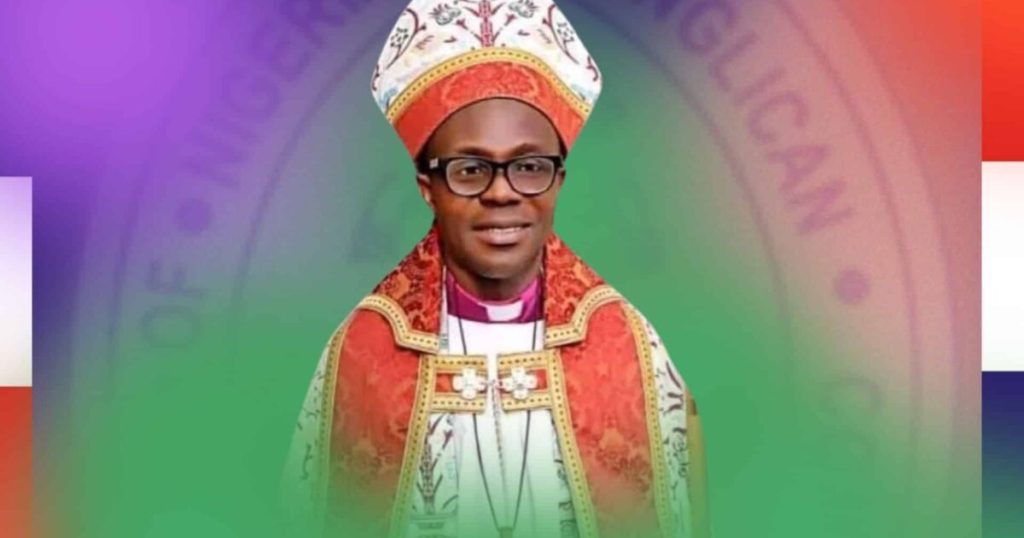The Anglican Diocese of Calabar, Nigeria, has reaffirmed its unwavering opposition to LGBTQ+ identities and practices. Bishop Nneoyi Egbe, during a press conference announcing the diocese’s upcoming synod, emphasized the church’s continued adherence to traditional biblical interpretations of marriage and sexuality. This stance aligns with the Global Anglican Future Conference (GAFCON), a coalition of Anglican provinces that share conservative theological views, particularly on issues of same-sex relationships and marriage. While expressing a welcoming attitude towards individuals identifying as LGBTQ+, Bishop Egbe underscored that acceptance within the church hinges upon repentance and adherence to the church’s doctrines on marriage exclusively between a man and a woman. This reiteration of the Anglican Church’s position in Nigeria highlights the ongoing tension between traditional religious beliefs and evolving societal norms regarding sexuality and gender identity.
Bishop Egbe’s statements reflect a broader debate within the Anglican Communion globally, where differing interpretations of scripture and evolving cultural values have led to significant divisions. The GAFCON movement represents a conservative faction within the Anglican Communion that firmly resists any acceptance of same-sex relationships. This stance contrasts with more liberal provinces within the communion, some of which have moved towards blessing same-sex unions and recognizing LGBTQ+ clergy. The Nigerian Anglican Church’s alignment with GAFCON solidifies its position within this ongoing theological and social conflict, emphasizing its commitment to a traditional understanding of marriage and sexuality.
Furthermore, Bishop Egbe connected the perceived decline in societal morals to the government’s takeover of church-run schools. He argued that this secularization of education has contributed to moral decadence, particularly among young people. In response, the Anglican Diocese of Calabar is reinvesting in its educational institutions, aiming to cultivate students who are not only intellectually sound but also morally grounded. This investment reflects a broader strategy among some religious communities to reclaim a role in shaping societal values through education, countering what they perceive as the negative influences of secular educational systems. This highlights the interconnectedness of religious beliefs, moral education, and the perceived role of the church in shaping societal values.
The bishop’s comments on education reveal a belief that the separation of church and state in educational settings has resulted in a moral vacuum. He advocates for a return to religious instruction as a cornerstone of education, suggesting that this is necessary to instill the moral and ethical values that he believes are lacking in secular education. This perspective reflects a broader debate about the role of religion in public life and the appropriate balance between religious freedom and the separation of church and state, particularly within educational systems. The Anglican Church’s investment in its own schools represents an attempt to address this perceived moral deficiency and to promote a worldview based on its specific religious doctrines.
The theme of the synod, “Image which Thou has Set Up,” drawn from the Book of Daniel, further emphasizes the church’s focus on upholding traditional values and resisting what it sees as a departure from divinely ordained principles. The story of Daniel and his companions refusing to bow down to a golden image represents a powerful symbol of resistance against societal pressure to compromise one’s faith. By choosing this theme, the diocese highlights its resolve to stand firm in its convictions regarding LGBTQ+ issues, despite societal shifts towards greater acceptance and inclusion. This underscores the significance of biblical interpretation and its influence on shaping the church’s stance on contemporary social issues.
In conclusion, Bishop Egbe’s statements during the press conference underscore the Nigerian Anglican Church’s unwavering adherence to traditional interpretations of scripture and its opposition to LGBTQ+ inclusion. This stance aligns with the broader conservative movement within the Anglican Communion represented by GAFCON. The diocese’s reinvestment in its schools reflects its belief in the importance of religiously-informed education in shaping moral character and societal values. The chosen theme for the synod further emphasizes the church’s commitment to upholding its traditional doctrines in the face of evolving societal norms. This illustrates the complex interplay between religious beliefs, social issues, and the role of the church in navigating a rapidly changing world.


